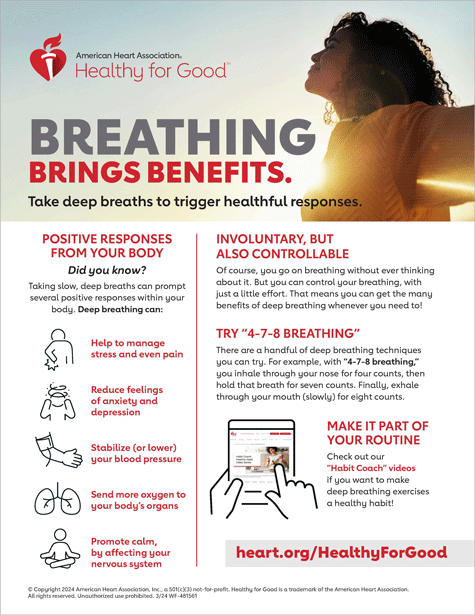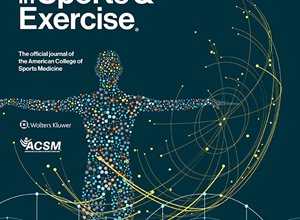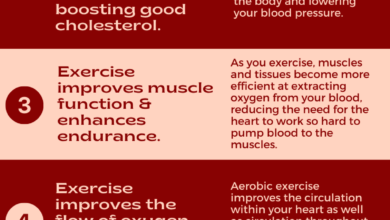
What are the Disadvantages of Exercise in Your Cardiovascular System: Risks Unveiled
Exercise is often praised for its health benefits. Yet, it can also have drawbacks for your cardiovascular system.
Engaging in physical activity is essential for maintaining a healthy lifestyle. It strengthens muscles, improves mood, and boosts energy. But, excessive or improper exercise can harm your heart and blood vessels. Overworking your body may lead to high blood pressure, irregular heartbeats, and even heart attacks.
Understanding the potential risks is crucial for safe and effective workouts. This article explores the disadvantages of exercise on your cardiovascular system. By recognizing these issues, you can take steps to protect your heart while staying fit. Let’s dive into the surprising downsides of exercise for your cardiovascular health.
Introduction To Exercise And Cardiovascular Health
Exercise is vital for maintaining a healthy heart and circulation system. It strengthens the heart and improves blood flow. Yet, understanding both benefits and risks is essential.
Benefits Vs. Risks
Exercise offers many benefits for cardiovascular health, such as:
- Improved heart function
- Lower blood pressure
- Better cholesterol levels
But, it also comes with potential risks:
- Increased heart rate
- Risk of heart attack
- High blood pressure spikes
These risks are greater for those with existing heart conditions. Intense exercise might trigger a heart event. Thus, moderation and medical advice are crucial.
Common Misconceptions
Many believe intense exercise is always beneficial. This is not true. Over-exertion can strain the heart.
Another myth is that only vigorous exercise helps the heart. Moderate activities like walking also improve cardiovascular health.
Some think they must avoid exercise after a heart issue. Yet, safe, guided exercise can aid recovery. Consulting a doctor ensures safety.
Understanding these points helps in making informed decisions about exercise routines. Keeping balance and seeking professional advice is key.
Overexertion And Heart Strain
Exercise is good for the heart. But too much can be harmful. Overexertion can cause heart strain. This can lead to several issues. It’s important to recognize the signs. And understand the long-term effects on the heart.
Signs Of Overexertion
Overexertion can show in many ways. Some signs to watch for are:
- Shortness of breath – Struggling to breathe during or after exercise.
- Chest pain – Feeling pain or tightness in the chest.
- Excessive fatigue – Feeling extremely tired even after rest.
- Dizziness – Feeling lightheaded or faint.
- Irregular heartbeat – Experiencing palpitations or abnormal heart rhythms.
If you notice any of these signs, it’s crucial to stop and rest. Pushing through can cause more harm.
Long-term Heart Damage
Continuous overexertion can lead to long-term heart damage. This can include:
| Condition | Description |
|---|---|
| Cardiomyopathy | A disease of the heart muscle. It becomes enlarged, thick, or rigid. |
| Arrhythmias | Abnormal heart rhythms can lead to serious issues. |
| Heart Failure | The heart can’t pump blood as well as it should. |
Understanding the risks is essential. It helps in making informed decisions about exercise routines. Always listen to your body. And seek medical advice if needed.
High-intensity Training Risks
High-intensity training can be a double-edged sword. While it offers great benefits, it can also pose risks to your cardiovascular system. Let’s explore some of these risks.
Potential Heart Complications
High-intensity exercises can put a lot of stress on your heart. This can lead to various complications, especially for those with pre-existing conditions.
Here are some potential heart complications:
- Arrhythmias: Irregular heartbeats can occur during intense workouts.
- Heart Attacks: Overexertion can increase the risk of a heart attack.
- High Blood Pressure: Intense exercise can cause a temporary spike in blood pressure.
Who Should Avoid It
Not everyone is suited for high-intensity training. Certain individuals should approach it with caution.
Here is a list of people who should avoid high-intensity training:
- People with heart disease
- Those with high blood pressure
- Individuals recovering from heart surgery
Always consult a doctor before starting any high-intensity workout program. It’s essential to know your limits and exercise safely.

Credit: www.facebook.com
Impact Of Exercise On Blood Pressure
Exercise can have various effects on your cardiovascular system. One significant impact is on blood pressure. Understanding these effects can help you make informed decisions about your fitness routine.
Hypertension Concerns
Intense exercise can sometimes elevate blood pressure. This happens when the heart works harder to pump blood. For those with hypertension, this spike can be risky. It could lead to complications like stroke or heart attack. Monitoring your blood pressure during and after exercise is crucial. Always consult with a healthcare provider before starting a new workout regimen.
Hypotension Risks
Exercise can also cause a drop in blood pressure, known as hypotension. This is common post-exercise, especially after intense workouts. Symptoms can include dizziness, fainting, or blurred vision. Staying hydrated and allowing your body to cool down gradually can help. If you experience these symptoms, it’s important to seek medical advice.
Sudden Cardiac Arrest
Sudden Cardiac Arrest (SCA) is an unexpected loss of heart function. It is a serious condition that can occur during or after exercise. Though exercise is beneficial, it carries risks, especially for those with undiagnosed heart conditions.
Causes And Triggers
SCA can be triggered by various factors. Here are some of the common causes:
- Coronary Artery Disease: Plaque buildup in the arteries can restrict blood flow.
- Heart Attack: A heart attack can lead to electrical disturbances in the heart.
- Arrhythmias: Irregular heartbeats can cause the heart to stop.
- Cardiomyopathy: Enlarged or thickened heart muscles can lead to SCA.
Triggers during exercise can include:
- Intense Physical Activity: Overexertion can stress the heart.
- Dehydration: Low fluid levels can affect heart function.
- Electrolyte Imbalance: Imbalances in sodium or potassium can disrupt heart rhythm.
Prevention Strategies
Preventing SCA during exercise involves several strategies:
- Regular Health Check-ups: Ensure your heart is healthy before engaging in strenuous activity.
- Gradual Intensity Increase: Slowly increase the intensity of your workouts.
- Stay Hydrated: Drink plenty of water before, during, and after exercise.
- Monitor Electrolytes: Keep your sodium and potassium levels balanced.
- Listen to Your Body: Stop exercising if you feel dizzy, short of breath, or experience chest pain.
By following these strategies, you can reduce the risk of SCA during exercise. Stay aware of your body’s signals and maintain a balanced approach to physical activity.

Credit: www.heart.org
Dehydration And Cardiovascular Stress
Exercise is vital for cardiovascular health. But, it has some drawbacks. One major concern is dehydration. Dehydration can lead to cardiovascular stress. This stress impacts your heart and blood vessels. Let’s explore how dehydration affects your cardiovascular system.
Effects On Heart Function
Dehydration makes your heart work harder. Your blood volume decreases, which causes your heart to pump faster. This increased heart rate strains your cardiovascular system. It can lead to heart problems over time.
Also, dehydration can cause an imbalance in electrolytes. Electrolytes are crucial for heart function. Without proper balance, your heart may not function well. This can lead to irregular heartbeats or arrhythmias.
Warning Signs
Recognizing dehydration signs is crucial. Common signs include dry mouth, dizziness, and dark urine. These signs indicate your body needs water. Ignoring them can cause severe cardiovascular stress.
Severe dehydration symptoms are more alarming. These include rapid heartbeat, low blood pressure, and fainting. Such symptoms require immediate attention. They indicate serious cardiovascular problems.
Electrolyte Imbalance
Exercise is essential for maintaining a healthy cardiovascular system. But, it can sometimes lead to an electrolyte imbalance. Electrolytes are minerals in your body that have an electric charge. They help balance the amount of water in your body and maintain your body’s pH level. An imbalance can affect your cardiovascular health. Let’s explore how it impacts your heart and ways to maintain balance.
Role In Cardiovascular Health
Electrolytes like sodium, potassium, and calcium are vital. They help in muscle contraction and relaxation. The heart is a muscle that relies on these minerals to function properly. An imbalance can lead to irregular heartbeats. It can also cause high blood pressure or even heart failure.
How To Maintain Balance
To keep your electrolytes balanced, drink plenty of water. Eat a balanced diet rich in fruits and vegetables. Bananas, oranges, and spinach are great choices. Avoid excessive intake of salt and sugar. These can disrupt the balance of minerals in your body.
Monitor your exercise intensity. Over-exercising can lead to excessive sweating, causing an electrolyte loss. Listen to your body. Rest when you feel exhausted. Consider electrolyte drinks if you exercise intensely. These drinks can help replenish lost minerals.

Credit: m.facebook.com
Pre-existing Heart Conditions
Exercise is beneficial, but it can be risky for some people. This is especially true for those with pre-existing heart conditions. If you have a heart problem, you need to be cautious. Exercise can put extra strain on your heart. This can be dangerous if your heart is already weak.
Exercise Considerations
People with heart conditions need to be extra careful. Here are some key points to consider:
- Intensity: Avoid high-intensity workouts. These can cause your heart to work too hard.
- Duration: Keep your exercise sessions short. Long sessions can tire your heart.
- Type: Choose low-impact exercises like walking or swimming. These are easier on the heart.
Always listen to your body. If you feel dizzy or short of breath, stop immediately.
Consulting A Healthcare Professional
Before starting any exercise routine, talk to a healthcare professional. They can help you create a safe plan. Here are some steps to follow:
- Medical Check-up: Get a full check-up. This helps to know the limits of your heart.
- Exercise Plan: Work with a professional to create a plan. This plan should be tailored to your needs.
- Regular Monitoring: Keep track of your heart health. Regular check-ups are essential.
Consulting with a professional ensures your safety. It helps you avoid complications during exercise.
Safe Exercise Practices
Safe exercise practices are crucial to prevent harm to your cardiovascular system. While exercise has many benefits, overexertion can lead to potential risks. Following safe practices can help you enjoy the benefits of exercise without compromising your heart health.
Monitoring Heart Rate
Monitoring your heart rate is essential during exercise. A heart rate monitor can help you stay within a safe range. Knowing your target heart rate zone can prevent overexertion. It allows you to exercise efficiently without straining your heart.
Gradual Progression
Gradual progression in your exercise routine is vital. Start with low-intensity exercises and slowly increase intensity. This approach helps your cardiovascular system adapt gradually. It reduces the risk of stress and injury to your heart.
Frequently Asked Questions
Can Exercise Negatively Impact The Cardiovascular System?
Excessive exercise can strain the cardiovascular system, leading to potential heart issues. It can cause irregular heart rhythms and increased blood pressure.
How Does Overtraining Affect Heart Health?
Overtraining can lead to chronic inflammation and oxidative stress. This increases the risk of cardiovascular diseases and weakens heart muscles.
Can Intense Workouts Cause Heart Problems?
Yes, intense workouts can cause heart problems, including arrhythmias and heart attacks. It’s crucial to monitor intensity levels.
Is There A Risk Of Heart Attack During Exercise?
Yes, especially if you have pre-existing heart conditions. Sudden intense exercise can trigger a heart attack.
Conclusion
Exercise offers many benefits, but it’s not without risks. Over-exertion can strain the heart. High-intensity workouts might lead to cardiovascular problems. Listen to your body. Avoid pushing too hard. Stay aware of your limits. Regular check-ups with your doctor help.
Make informed choices. Balance exercise with rest. Protect your cardiovascular health. Always prioritize safety in your fitness routine.






